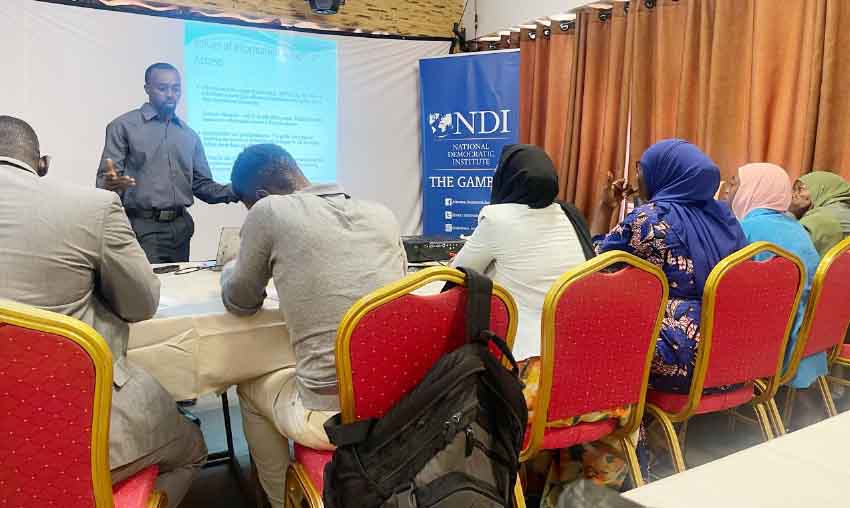By Kumba Leigh
Access to Information is the lifeblood of any democratic society. It allows for the creation of a well-informed society on issues of government and governance, public participation in the political, social dialogue and economic affairs of any country as well as help citizens make informed choices.
Attuned to this fact, the National Democratic Institute (NDI), in collaboration with the Gambia Press Union last week organised a two-day trained Government Information Officers on the implementation of the Access to Information (ATI) law. The ATI law ensures citizen’s participation in decision making, promotion of transparency and accountability in public institutions.
The training, held at Bakadaji Hotel, aimed to enhance the knowledge and skills of participants to better understand the law and to support public engagement in seeking information, participate in information sharing and better perform their roles and responsibilities in the implementation of the law.
Madiba Sillah, Senior Principal Information Officer, Department of Information Services, highlighted his department’s mandates as well as the work of Information Officers. He underscored the significance of access to information.
He posited that access to information law enhances accountability and good governance, saying it affords the public the right to scrutinise their leaders in terms of decision making processes, ensures citizens’ participation, and in enhancing democracy.
He went on: “Access to Information is a key tool in combating corruption. It helps facilitate effective business practices and ensures poor governance is addressed through open debate’’.
He opined that in our part of the world, decision making is not usually data-driven, thereby affecting our development processes.
For her part, Bintou Jaiteh, Legal Consultant, and ATI Trainer, talked on the legal explanations of the act. She said Access to Information is an instrumental tool for any democratic society, affirming that accords the right to participate in the affairs of the state and on issues that affect individuals’ rights.
On the advent of the ATI Act 2021, Madam Jaiteh said the campaign that culminated to the promulgation of the Access to Information (ATI) Bill was led by The Gambia Press Union (GPU) through the establishment of the Civil Society (CSO) Coalition on Access to Information. “The bill was later handed over to the Ministry of Justice for review and onward submission to cabinet, and it later went through a thorough and extensive technical review process by local and international experts before it was validated by stakeholders in government, CSOs, international development organisations, media and citizen groups”.
The success of the ATI legislation, she explained, lied not just in the quality of the legal instrument, but also in its application, use and implementation.




